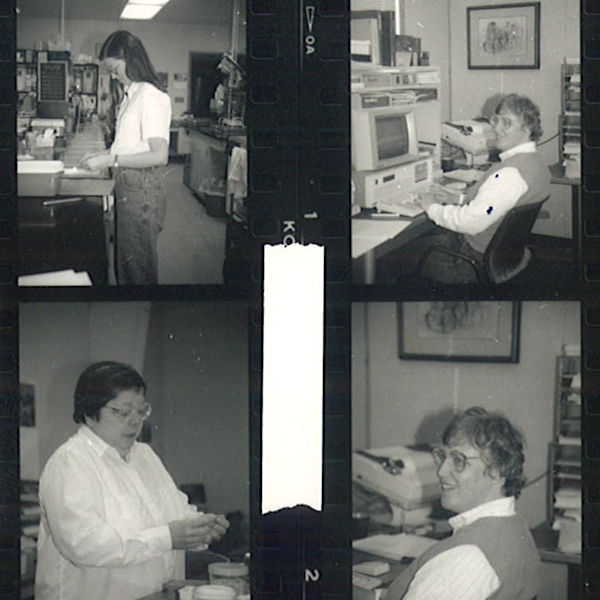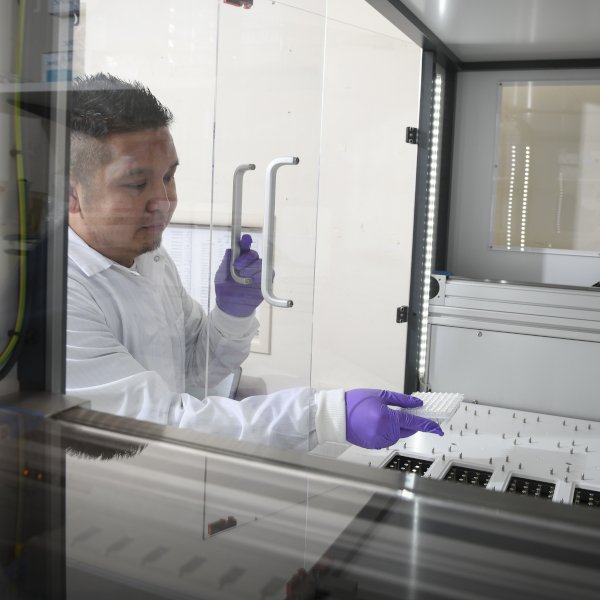About the Veterinary Genetics Laboratory

The Veterinary Genetics Laboratory (VGL), originally known as the Serology Laboratory, was established in the 1950s under the direction of Dr. Clyde Stormont for the purpose of verifying parentage for cattle registries. At that time, all identity and parentage testing was carried out with blood typing analysis of serum proteins and red blood cell surface proteins. Blood typing was developed for horses in the 1960s and for llamas and alpacas in the 1980s. Today, under the direction of Dr. Rebecca Bellone, the laboratory is a self-supporting unit of the UC Davis School of Veterinary Medicine, providing animal parentage verification, identification, forensic services, genetic diagnostic testing, and genetic research across species.
VGL was a pioneer in the development of DNA-based animal parentage verification. In the early 1990s, VGL began the development of parentage tests using microsatellite DNA markers also referred to as STRs (short tandem repeats). VGL was the first animal parentage laboratory to offer DNA testing to the horse, cattle, and camelid industries in the mid-1990s and has since introduced DNA-based tests for elk, deer, dogs, cats, sheep, goats, and primates. Utilizing this technology, the VGL has generated nearly 4 million DNA profiles.
The International Society for Animal Genetics (ISAG) recognizes the parentage tests offered by VGL as international standards. The laboratory has been an active member of the ISAG since 1974 and takes part in the biannual horse, alpaca/llama, donkey, dromedary, pig, cattle, sheep/goat, cat, and dog parentage comparison tests carried out under the auspices of ISAG. The biannual ISAG meetings provide a venue for data comparison and the establishment of test standards for all animal parentage laboratories. The VGL has trained visiting scientists and technicians from laboratories in the US and abroad since the 1970s in parentage and other DNA typing technologies. VGL is considered the leading animal DNA parentage verification laboratory in the world.

In response to inquiries, VGL began development of a small-scale veterinary forensics program in the mid-1990s. This program has continued to expand and is now recognized as a leader in the field of veterinary forensics. Accreditation was initially obtained on July 27, 2010 and the VGL Forensic Section (VGL-Forensics) is proud to be the first accredited crime lab dedicated to domestic animal DNA analysis. VGL-Forensics has been involved in many high-profile criminal cases both nationally and internationally.
For several decades, VGL has been a leader in equine genetic and genomic research and actively contributes to the international effort to better understand and characterize the horse genome. The laboratory has developed and currently offers diagnostic tests for a number of equine genetic diseases and coat colors and has an active research and test development program in this area. In recognition of the high quality and accuracy of services provided, the laboratory obtained its first ANSI National Accreditation Board (ANAB) accreditation on November 4, 2020. We also conduct genetic research in a wide variety of other species, including cat, dog, camelids, and several wildlife species, among others. This research leads to novel discoveries improving the understanding of animal biology, animal and human health, and wildlife conservation and management. Our work is often interdisciplinary involving collaborations with other members of the School of Veterinary Medicine, across the UC Davis campus and around the globe.

